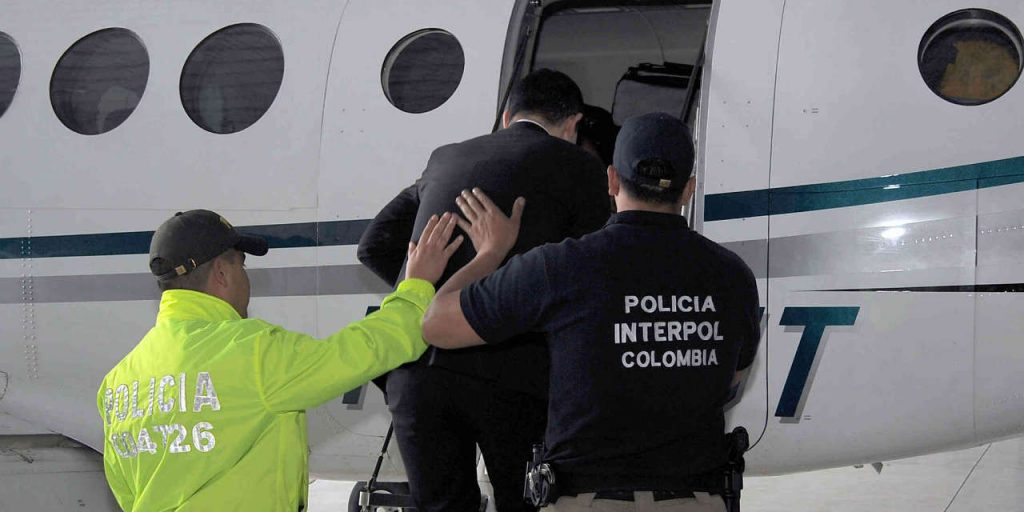Colombia’s former anti-corruption chief, who has admitted to bribing the country’s Supreme Court, was extradited on Thursday after a deal to cooperate with justice from the United States.
The Drug Enforcement Administration (DEA) requested the extradition of the Prosecutor General’s hand-picked anti-prosecution chief, Luis Gustavo Moreno, in June last year.
Since then, evidence surrendered by the DEA and testimonies given by Moreno resulted in the arrest of a former Supreme Court chief justice. One magistrate was removed from the court and a second former chief justice was also accused of having received bribes from politicians in what became known as the “Toga Cartel.”
Colombia’s supreme pimp of justice?
More than 25 former officials from all branches of government have since been implicated in the scandal, according to local media.
A Bogota judge on Thursday ratified the plea agreement between Moreno and his former employer after which the disgraced official was extradited to stand trial in Florida, where he has been indicted on money laundering charges.
In the plea bargain, Moreno agreed to testify against allegedly corrupt officials from the US. In return, the prosecution vowed to not charge its former anti-corruption chief with all alleged crimes on his return to Colombia.
The fact that all three branches of government are implicated in the scandal makes effectively investigating the alleged corruption almost impossible.
Congress, which should investigate the judges, was already considered the country’s most corrupt institution.
The Supreme Court is the designated body to investigate the implicated lawmakers, but has been accused of being a recipient of the bribes mediated by Moreno.


